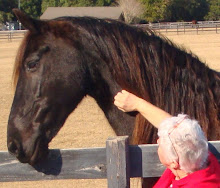We have a friend, Kirk (name changed), who spent many years drinking vodka and taking valium. Sober and clean now for more than 20 years, Kirk still has trouble with complicated thoughts. He loves to tell jokes, but any joke with more than two steps or inferences or any big words just don’t compute in his brain. Fortunately, many jokes fit in his repertoire and he keeps us laughing a lot.
He is also one of the kindest, most gentle human beings I have ever known. His feedback when you tell him your problems is always succinct and to the point. “Does it really make a difference right now? Enjoy your food.” “Well, you can’t change her, but you can change your attitude.” “Don’t let it get to you; that makes it worse.”
His hugs are wonderful, and to put your head on his shoulder is to feel completely safe. Did I mention that he’s also very good looking?
Of course, he will ask you the same question five or six times before he gets it just right in his head. And, he wants to make sure that he doesn’t offend you, his friend. He tolerates a lot before he will just slip out of your life…and he has tolerated a lot from some of his friends. If they ever straighten up, he’ll be the first one back in their lives.
He visited us in our “new” home for the first time this weekend, arriving yesterday afternoon and leaving around lunchtime today. As we were sitting together enjoying the warmth of friendship conversation and quiet, he said, “Let me tell you something about how my brain works. Yesterday when we got here and you showed me around, this house made no sense. The rooms all ran together and I couldn’t get an idea of where anything was located. Today, it’s just a normal house, and I know where everything is.”
What an insight! A different kind of dyslexia than I’ve known before. The brain seems not to connect one view with another, no panoramic concept, no floor plan. Just a jumble of rooms. Now I understand why he didn’t want to make this trip by himself. He was afraid that he couldn’t connect the pictures to get here or to get home. Too far and too unknown.
Routine is important to Kirk. Connecting with people for whom he cares is important. His grandchildren and children are important. And, we love him dearly.
We can have some conversations about complicated things like war and politics, but we don’t dig deep into the details. We talk about people and good and harm and pain and life. Kirk is hesitant to say anything bad about anyone, but he wants the best for everyone everywhere.
Kirk is our friend, and by his sharing how his brain was working, And, I can understand that the vodka and valium probably made a small problem with dyslexia much worse. Now, I know how to have better conversations with him, how to be a better friend. And, I’m grateful to him. He’s listened to me often enough without judgment and often with no comment but a hug. He’s been on my gratitude and prayer list for a long time.
Sunday, February 25, 2007
Subscribe to:
Post Comments (Atom)





1 comment:
It sounds like you're a much-needed blessing in Kirk's life, and he, in turn, is blessing you. How wonderful.
Post a Comment